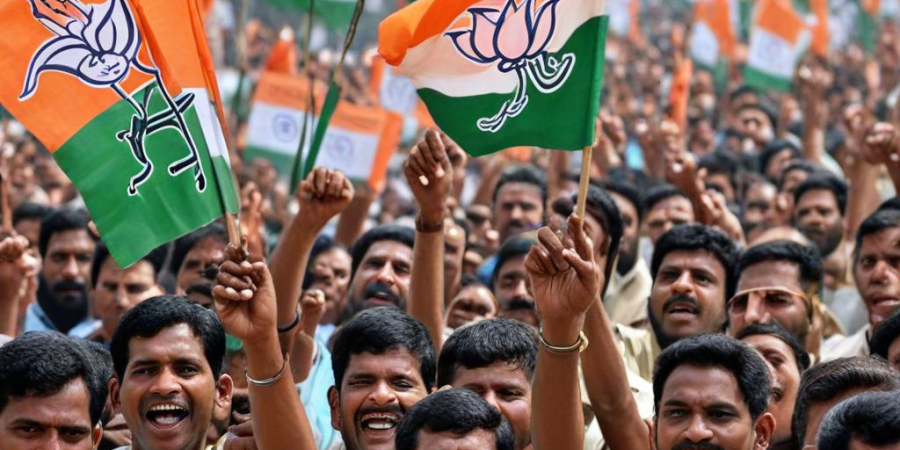

India greeted the year 2024 with a great deal of expectation. The world's biggest democratic exercise, the Lok Sabha elections, was approaching, promising a show of political manoeuvring, passionate campaigning, and a fight for a country's soul.
With Prime Minister Narendra Modi at the helm, the ruling Bharatiya Janata Party (BJP) gave off an air of invincibility. Their story revolved around a robust and resolute leader, a flourishing economy, and a resurgent India assuming its proper position on the global arena. But fissures had started to show. Social instability, price increases, and unemployment all sent shivers down the nation's spine. The opposition, a confederation of ideologically disparate parties, saw a window of opportunity. Under Rahul Gandhi's leadership, the Indian National Congress worked to restore its reputation by emphasizing social justice and economic disparity. Regional parties, with significant sway over their home states, saw an opportunity to act as kingmakers.
India saw a surge in political passion as soon as the Election Commission released the dates. With charismatic leaders speaking to large crowds, their voices amplified by loudspeakers, and their promises resonating through the streets, rallies evolved into mega-events. Being a gifted speaker, Prime Minister Modi enthused his supporters with his vision of a "New India"—a world powerhouse based on economic strength and cultural pride.
The opposition parties openly criticized Prime Minister Modi's policies during their campaign by running on platforms of inclusion and shared prosperity. Rahul Gandhi developed became a more vocal leader who criticized the way the administration handled social and economic concerns. Regional leaders such as MK Stalin and Mamata Banerjee concentrated on local issues and a more federal model of governance for India. Social media, which was overrun with political memes, hashtags, and messages, turned become an important battlefield. It was said that propaganda and misleading information were disseminated by both sides, making it difficult to separate fact from fiction.
Millions of Indians cast ballots on election day, demonstrating the robustness of the nation's democracy. But the findings revealed a sharply divided country. Modi's popularity and the BJP's well-run campaign helped them win a sizable victory and secure another term in power in spite of a fierce opposition campaign. Modi is confronted with formidable obstacles as he takes office for a third term, such as a faltering economy, social unease, and a changing global environment. Despite losing, the opposition will get back together and make plans for next elections.
The complicated and dynamic democracy of India was brought to light by the 2024 elections. Even though the BJP won this time, there is still a strong yearning for change and inclusivity, which implies that there will be fierce competition in future elections.
